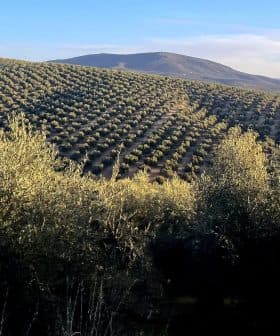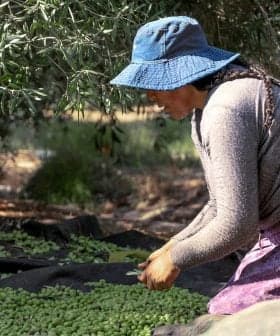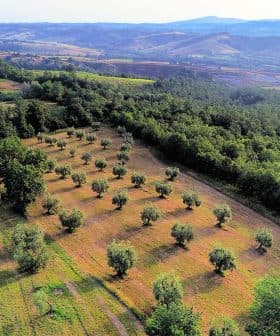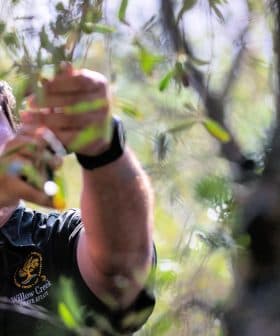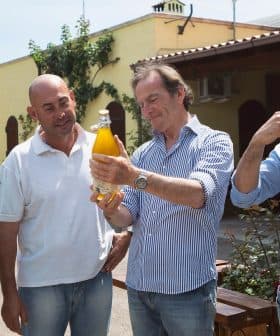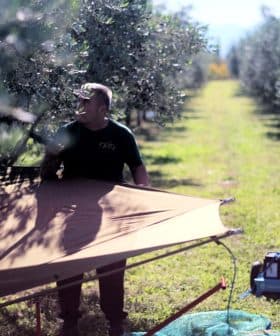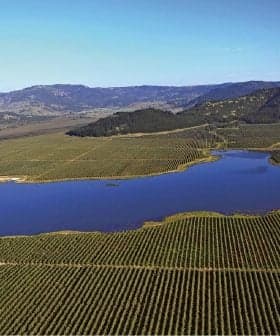A Silver Lining for Some Moroccan Producers After Poor Harvest
Olive oil production recovered from the lows of the previous harvest, but remained significantly below the five-year average. Still, some producers celebrated award-winning quality.
 (Photo: Noor Fès)
(Photo: Noor Fès) Morocco is expected to produce 109,836 tons of olive oil in the 2023/24 crop year, exceeding initial expectations but still below the five-year average. Despite challenges from drought and heatwaves, some Moroccan producers achieved award-winning quality in their olive oil production and remain optimistic about the future.
A disappointing harvest has concluded in Morocco with some good news for a few producers.
Adil Bajoub, an agronomic engineer and coordinator of Morocco’s first olive oil-specific Master’s degree, told Olive Oil Times that Morocco is expected to produce 109,836 tons of olive oil in the 2023/24 crop year.
Though initial dry conditions raised concerns, recent rains in Marrakech have brightened our outlook for the upcoming season.
While this exceeds the initial expectation of 106,000 tons and last year’s yield (which the International Olive Council revised down from 156,000 tons to 107,000 tons), it remains significantly below the five-year average of 160,000 tons.
Rachid Benali, the president of the Moroccan Interprofessional Olive Federation, told local media that a lack of rainfall in the months before the harvest resulted in far lower levels of oil accumulation than previously expected.
See Also:The best extra virgin olive oils from Morocco“In the dry zones, production [was] minimal,” he said. “Even in areas with good olive fruit set, the olives were very small. Instead of reaching 20 to 22 percent, oil yields were between 10 and 15 percent.”
However, some of the county’s farmers and millers still achieved award-winning quality. Three producers combined to earn one Gold Award and two Silver Awards at the 2024 NYIOOC World Olive Oil Competition.
“The harvest this year turned out better than expected, despite the rain shortfall,” said Wajih Rekik, the chief executive of CHO America, which earned a Silver Award for its Moresh brand.
“Our olive oil quality was high, achieving acidity levels under 0.2 percent in much of our production,” he added. “Though initial dry conditions raised concerns, recent rains in Marrakech have brightened our outlook for the upcoming season.”
While CHO Group is Tunisia’s largest olive oil producer, the company also manages 280 hectares of olive groves near Marrakech.
According to company data, CHO Group will export 600 tons of Moresh extra virgin olive oil in the current crop year, with France, the United States and Canada as the main destinations. “Our sales in 2024 quadrupled compared to 2023,” Rekik said.
About 400 kilometers northeast of Marrakech, the producers behind Noor Fès also celebrated a relatively successful harvest and Gold Award for an organic Picholine. The family grows about 300 hectares of olive trees near Saïss.

The producers behind Noor Fès believe the local Picholine variety is the key to overcoming climate change-related challenges in Morocco. (Photo: Noor Fès)
“This year’s harvest was really well,” said Ghizlane Tazi, the company’s general manager. “Our production is stable compared to last year: we have around 400 tons of extra virgin olive oil.”
Tazi attributed the company’s resilience to its investments in the olive groves and agronomic practices. Still, she acknowledged the impact of the ongoing drought and intense heatwaves on many of the county’s olive oil producers.
“We have a durable and efficient drip irrigation system,” Tazi said, adding that Picholine olives tend to blossom in early April, meaning they were not impacted by the strong heatwaves and dry winds experienced in May when other varieties tend to blossom.
“By meticulously managing our irrigation and minimizing the effects of olive tree alternation through appropriate tree pruning, hand-picking to protect the buds,” Noor Fès avoided the extreme production declines experienced by other producers, Tazi said.
Even so, Moroccan producers and officials remain concerned about the impacts of climate change as the country continues to become hotter and drier. This will be especially felt by the 40 percent of the country’s olive groves that are not irrigated.
“Our main concerns revolve around the impact of global warming and the lack of rain, which pose significant challenges for the olive oil industry,” Rekik said. “The fluctuation in production and retail prices risks reducing olive oil consumption as buyers might turn to alternative oils.”
Bajoub added that early signs in the olive groves point to another challenging harvest for the North African country, the second-largest olive oil producer on the continent.
“Based on what I’ve observed during my visits to some orchards in the Meknes region, there’s a significant impact of climate change on this crop: indeed, rains from [earlier in the spring] gave hope, but the flowering was disrupted with some trees in full bloom, others just starting, or even not blooming at all,” he said.
“We can expect a decrease in production once again in the 2024/25 crop year,” Bajoub added. “At least in the Meknes region, I’m sure production will be below average.”
Despite the challenges, Tazi believes that Moroccan producers can adapt by embracing native varieties, investing in modern irrigation and following harvest best practices.
“The trend is towards volatility because the climate is unpredictable and changing throughout the entire region,” she added. “Nevertheless, we remain optimistic.”
Share this article


